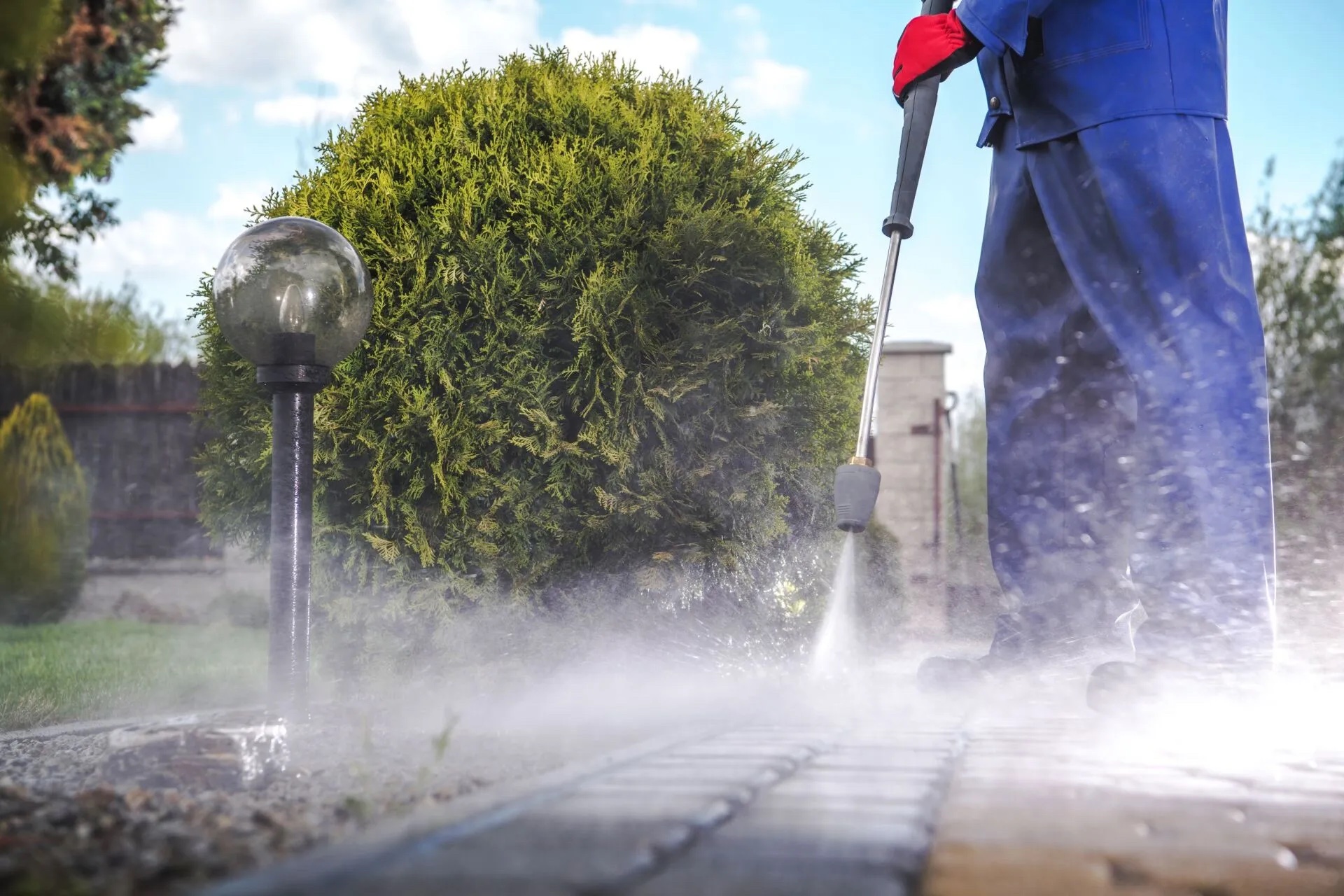If you’re looking to spruce up the exterior of your home, you may be considering pressure washing or power washing as a viable option. But what exactly is the difference between these two methods? In this blog post, we’ll explore pressure and power washing, how they differ, and the best option for your project. We’ll also discuss the advantages of each method and which might be more suitable for different types of surfaces. With all that in mind, let’s break down the differences between these two cleaning methods.
What is Pressure Washing?
Pressure washing is the use of high-pressure water to remove dirt, grime, and other deposits from surfaces. Pressure washing effectively cleans various surfaces, including driveways, sidewalks, decks, and patios. Power washing is a type of pressure washing that uses hot water instead of cold water. Power washing is often used to remove stubborn stains or to clean extremely dirty surfaces.
Pressure washing is a great way to keep your home and outdoor space pristine. Pressure washing can be used on all surfaces, from brick, concrete, and wood to metal or vinyl siding. It removes dirt and grime buildup quickly, without the need for harsh chemicals that can damage surfaces or cause health risks.
Pressure washing also helps kill mold, mildew, and algae which are common in humid climates. Pressure washers also require less water than traditional hoses or buckets for cleaning, making them more efficient in conserving resources.
What is Power Washing?
Power washing uses high-pressure water to remove dirt, grime, and other surface debris. Power washing is an effective way to clean driveways, sidewalks, decks, and other outdoor areas. Power washing can also be used to remove paint from surfaces.
Power washing can be a great way to improve the appearance of your home or business. It is an effective and efficient method for cleaning dirt, grime, mold, mildew, and other contaminants from surfaces like decks, patios, driveways, walkways, and siding.
Power washing can also help increase the lifespan of outdoor materials such as wood by removing moisture and bacteria that can cause damage over time. Additionally, it can be used to remove algae buildup on pool decks or driveways, helping maintain safety around wet areas; this makes power washing a unique tool for increasing curb appeal while preserving surfaces.
What are the Difference Between Pressure Washing & Power Washing?
- Pressure washing involves using a high-pressure water spray to clean surfaces, while power washing uses heated water in addition to pressure.
- Pressure washers use cold or hot water, depending on what you're cleaning, while power washers use only hot water heated by an onboard burner.
- Pressure washing is usually used for surface cleaning and does not require any additional detergents or soaps; however, power washing often involves the addition of specialized chemicals such as degreasers or disinfectants for better results with certain stains and dirt types.
- The pressure from a pressure washer can range from 1,000 to 3,500 PSI (Pounds per Square Inch), whereas the temperature of a power washer can reach up to 210°F (100°C).
- Pressure washers are usually preferred for jobs that don't require scorching temperatures, like decks, siding, and outdoor furniture, since they do not cause warping or discoloration due to their lower temperatures.
- Since higher temperatures are required when using a power washer, all safety precautions must be taken when operating this equipment; care must be taken around electrical appliances such as air conditioning units since their wiring may become damaged if exposed to high heat levels for long periods of time.
Conclusion
We hope this article has helped you understand the differences between pressure washing and power washing. Pressure washing is more suitable for larger surfaces and can be used with various cleaning solutions, while power washing is better suited for smaller spaces due to its powerful water flow. Both methods are effective ways to clean exterior home surfaces, but knowing which one will best meet your needs is essential before beginning any repair or maintenance project.






